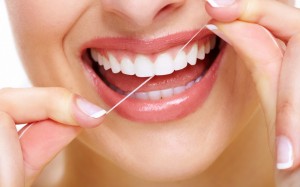 Eating vegetables keeps you healthy. Water keeps you hydrated. Sun protection keeps you from getting burned. There are some things in life we just don’t have to debate. You don’t need a study, or the results of a survey, to know it’s in your benefit to be healthy, hydrated, and comfortable.
Eating vegetables keeps you healthy. Water keeps you hydrated. Sun protection keeps you from getting burned. There are some things in life we just don’t have to debate. You don’t need a study, or the results of a survey, to know it’s in your benefit to be healthy, hydrated, and comfortable.
We accept certain truths about our teeth, as well. For years, dentists have known flossing daily is good for oral health. But a few months ago, that time-honored advice was brought into question.
The 2016 version of the U.S. Dietary Guidelines no longer included advice to floss every day – something that had been a standard recommendation since 1979. Why the removal? Government health recommendations must be based on scientific evidence and studies. In a letter to the Associated Press last year, the government acknowledged, “the effectiveness of flossing had never been researched” as required. So, this year the flossing recommendation was removed.
That had a lot of people asking, “So, we don’t need to floss anymore, right?”
Well, before you swear off flossing forever, it’s helpful to take a closer look at what was actually said.
While it is true the effectiveness of flossing has never been researched, there’s actually a reason why that’s the case. Simply put, studying the effectiveness of flossing is a near-impossible feat.
For a successful clinical study, you need a test group and a control group. For flossing, that would require a group of people to floss, and a control group to not floss, for a very long time – possibly even years. That’s not exactly ethical if flossing turns out to be beneficial.
On top of that, the many variables involved in a flossing study make it difficult to get accurate results. After all, if you told 1,000 people to floss, they’d all do it a little differently, yielding varied results. Additionally, the results of clinical studies are determined by checkups and surveys and, call it dentist’s intuition, but I have a feeling plenty of people have fibbed about flossing at least once.
Because there will likely never be a study on the benefits of flossing, we can only consider anecdotal evidence. Here’s what I can tell you as someone who looks at teeth all day, every day: People who floss regularly have healthier gums, because floss helps remove plaque and bacteria that could cause bigger problems (like gum disease) down the road.
There’s no shame in wanting to believe a headline as scandalous as “Benefits of Dental Floss Unproven.” It’s confusing, but stories like this are great opportunities to take a closer look at what medical research is saying (or not saying).
After all, there is also no scientific evidence that toilet tissue has a benefit, but you probably don’t want to stop using that any time soon.
